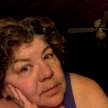Have You Ever Gone Word Blind?
or How Spell-check saved me!

Make the assignment fit me
In the mid-1970s I was enrolled in a “Modern American History” class at George Mason University in Northern Virginia. This class was from The Civil War ( oh that’s what it’s suppose to be called) to 1970s. As a Virginian raised in the 1960s all we knew of history was Virginia history from 1600s to 1860s — as if nothing ever happened after the Northern Aggression was over.
For the ubiquitous secondary-source research paper that you found in all college classes of the day, I retooled the assignment and went the original research route. Retooling an assignment is an old habit of mine by college. My first scholastic attempt at original research was at age 11 when I interviewed William Faulkner's Great Aunt. I received an "F" for not following directions, that is until my father, Dr. Chryst, came in like Sherman's army to defend my work.
For the college term paper I picked the “Great Depression” to research as my parents, their siblings and my grandmother had all lived through it. I’d heard their stories of hardships and triumphs my whole life. I wondered did the professional scholars miss anything, leave out anything?
I interviewed my relatives and compared their lived-history to that of the scholarly research on the depression. I received high marks for my paper’s content, but lost significant points for grammar/spelling. I was sad about that, but use to it, so I moved on. I learned a great deal, and that truly was all I cared about.
Ut-OH Test Time.
My history professor’s examination habit was to give us an on-demand essay first which he then graded while we took part two — the multiple choice/fill in the blank section. I was working on part 2- happy that I really knew this material. He called me up to his desk and asked me what number did I see. He pointed to the dates I had written in my essay on the Great Depression. Odd question I thought, “1932” I replied. “And this one?” he pointed to another date. Again I said “1932,” wondering what was wrong with him. He took his red pen and wrote above the number I had written, “And this number what is it?”
I was in a shock and started trembling. There in front of me at the end of his red ball point pen I saw that I had failed this test. Through the entire essay I wrote 1923 instead of 1932. My eyes teared up — I really cared about this class and this content. I had tried so hard. But the cold hard facts were there- I failed.
He said to me, “I know you really ‘know’ this material. Your research paper was incredible. This explains all the spelling errors. He underlines several other words with e before I with no “C” involved, missing double letters, ‘er’ instead of ‘ar’ “You have a thing called dyslexia- my son has it” He gave me full credit for the essay and didn’t take off points for the spelling or grammar. I was relieved, embarrassed and deeply confused.
Dyslexia-what is it?
I always received praise for content and lost out on As for poor spelling and crooked grammar. I wrote with a dictionary right by my side. When I discovered a Thesaurus I was over joyed! Finally, a tool for finding the exact word I wanted. For younger readers, this is way before personal computers and spell-check.
In 1976 there were no resources at George Mason University for 19 year olds with learning disabilities, at least none that I was ever made aware. I spent hours in the library trying to read about and research dyslexia. There wasn’t much information. And what there was didn’t exactly fit — I didn’t have “word blindness.”
Word-blindness was what it was called in 1878 when Dr. Adolph Kussmaul first noticed patients who had difficulty reading and mixed the order of there words. (ever order a chilled grease sandwich? I have) I could see words just fine — I just couldn’t decode any unfamiliar words. Along with an inability to differentiate er, ir, ar, or — stupid English language!
What I concluded after hours in the library was that having an official label of a special needs or disability would keep me from being hired. I learned that prejudice against people with disabilities is very real. I learned I preferred the concept of challenge over disabled.
There is a way, if there is a will.
With my history professor’s help, I made a plan to take only 4 courses maximum a semester, 3 was better. It turned out that another limiting factor related to dyslexia is that my reading speed is abysmal. My reading ability is about 40% lower than what an average college students needs to be successful. However my comprehension rates are 10 % higher than the world champion speed reader (4700 words per minute).
In trying to craft the sentence about my reading speed I wondered if there was a reading speed app — sure enough. I set the levels at max- and tried my best. I read 145 words per minute. To succeed in college the app says I would need to read 350–450 words per minute. Prejudice is alive and well!
It took me 8 years to finish my undergraduate work at college. Dyslexia never stifled my desire to get a degree. I figured-out tricks along the way that helped. Using a ruler to read, helped me track from line to line and increase my reading pace slowly by moving the ruler a little faster each reading session. I also carried a small notepad with a list of words I would always get wrong. However, the game changer was the introduction of spell-check in the mid 1980s.
The game changer!
In my first semester of graduate school, (yes you read that correctly-graduate school). I wrote a paper I was extremely proud of — the actual assignment was to do original research! I spent three hours spell-checking. But that was considerably faster then having to look up words in my trusty, now very beat up American Heritage Dictionary in combination with the beloved Rogers’ Thesaurus — because when you can’t spell a dictionary can’t help! I would use the thesaurus to find alternate words that meant the same thing and worm my way through until I found the correct way to spell the word I wanted to use. Precision in word choice is important to me.
The paper was handed back covered in red ink. I burst into tears when I read “The content is exceptional, Next time edit for spelling.” The original Spell-Checker on apple computers only caught 50% of my errors. Spell check could’t tell that a word was wrong if it was actually spelled correctly but not the correct word. In my Dissertation I severed children for 104 pages — yikes. Severed instead of Served… It looks the same to me. Perhaps I am “word blind” after all but I didn’t allow it to keep me from earning my PdH.
Revised for Vocal. media: Originally published in Medium.com Illuminations
About the Creator
Carolyn F. Chryst
Has had an eclectic life — Waitress, Actress, Zoo Curator, Story Teller, Poet, Exhibit Designer, Writer, Farmer and Educator.






Comments
There are no comments for this story
Be the first to respond and start the conversation.